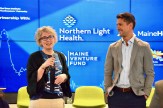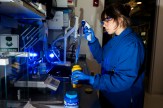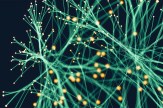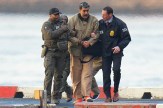Northeastern University models a partnership of academia, industry, and government to help solve defense problems in the United States
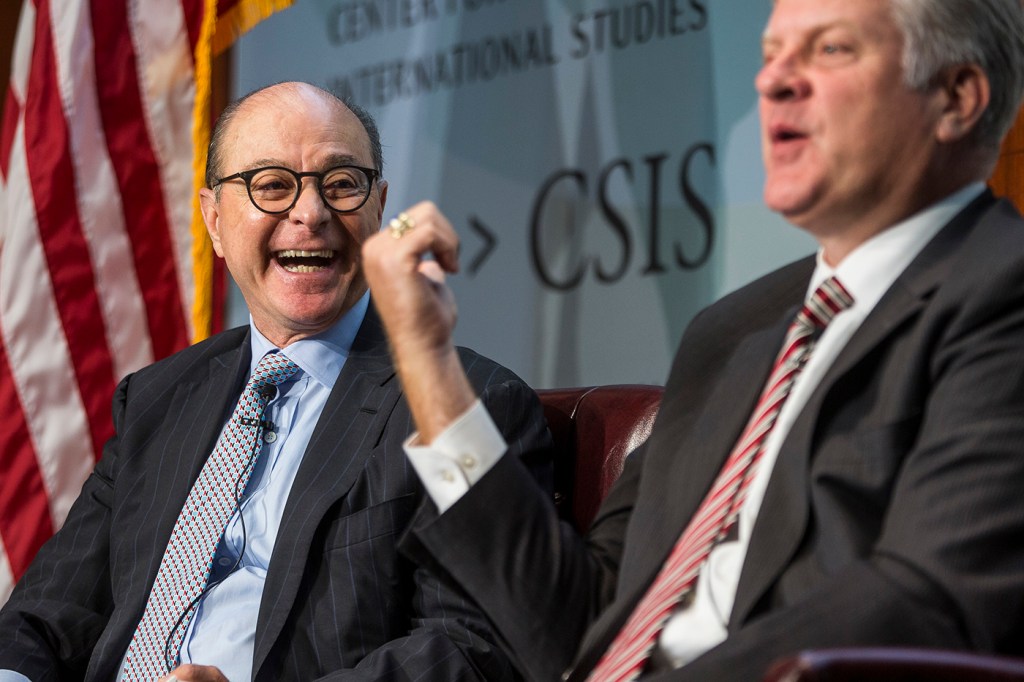
New technologies should be focused on human ethics and a universal desire to make life better for people around the world. That was the message embraced by Northeastern leaders, security specialists, and defense experts at an innovation conference hosted by Northeastern in Washington, D.C. Monday.
“The human factor has to be at the center of everything we do,” Northeastern President Joseph E. Aoun said in a one-on-one discussion with Steven Walker, director of the Defense Advanced Research Projects Agency.
The conversation between Aoun and Walker, held at the Center for Strategic and International Studies, kicked off a day of discussions about industry, government, and academia partnerships in defense and national security research.
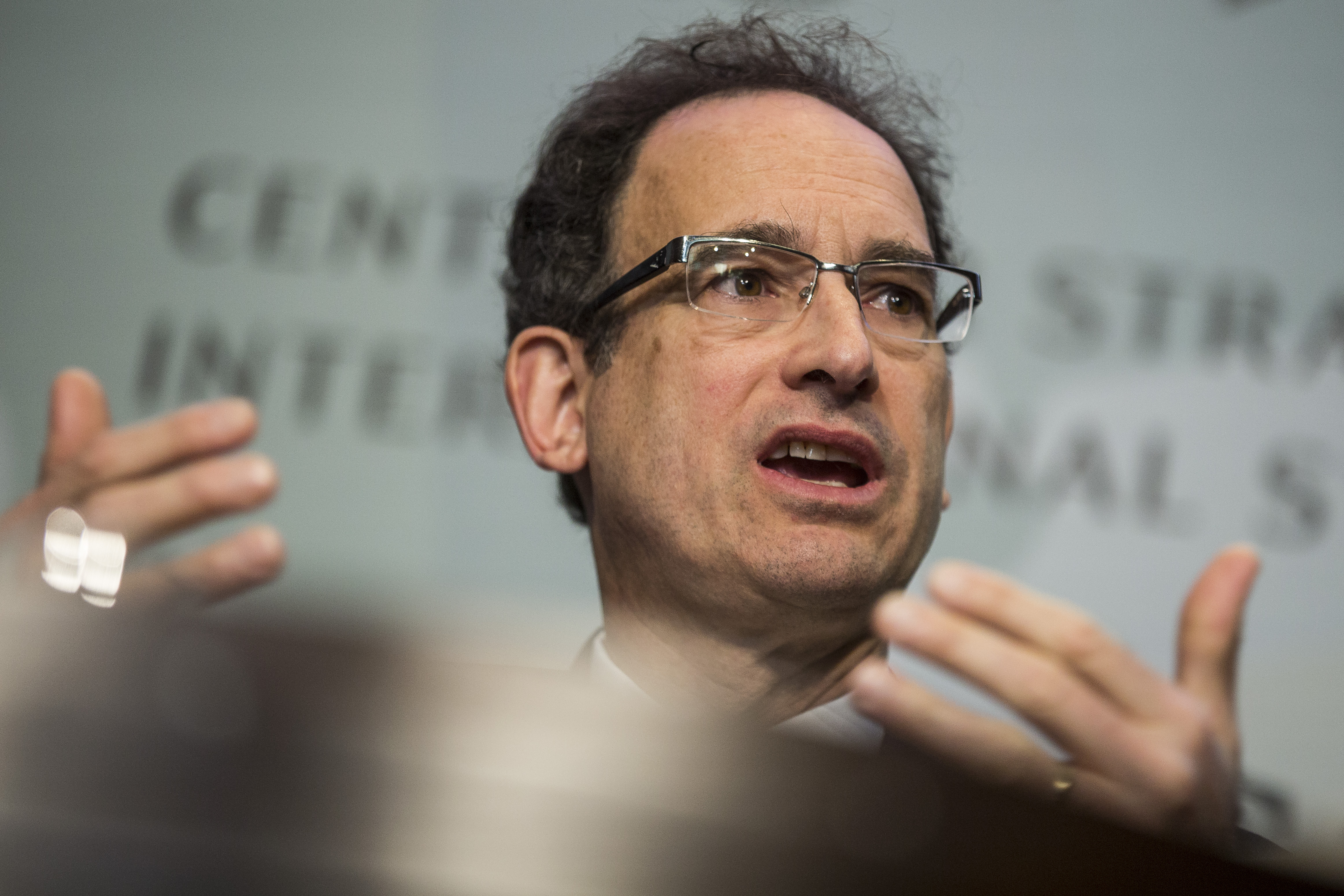
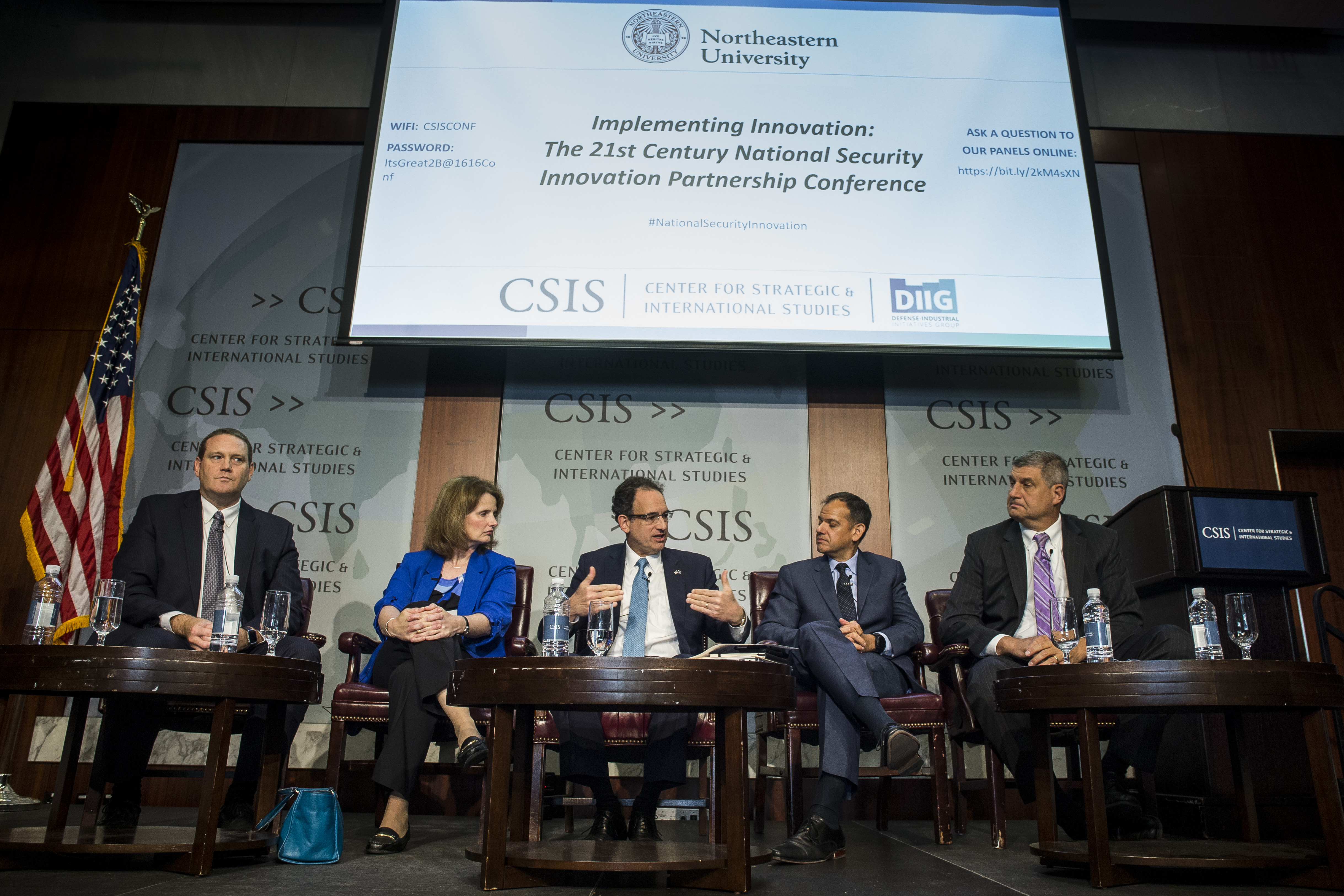
Northeastern’s Innovation Campus in Burlington, Massachusetts, has emerged as a model of American partnerships that bring together universities, industries, and the military. While DARPA has been focused on defense missions—including prosthetics that could help a pilot execute aerial maneuvers simply by thinking about them—it has also led to exciting deviations of research and development.
“Life sciences is the area where I see the most incredible technical leaps and bounds every day,” Walker said. “We have several programs at DARPA looking at how to make gene editing safe, and actually reverse the gene edit if we need to.
“We’re also looking at infectious disease. This is about being able to inject your cells and your muscles to produce antibodies automatically for a vaccine that we’ve never seen before—and do it in 60 days or less to protect a large population. This is work that we’ve been funding for about 10 years at universities, and now we’re going into clinical trials.”
One of Northeastern’s strengths, according to Walker, is that professors, researchers, and students choose whether to participate in national security projects in collaboration with government and industry.
“It’s not a mandate; it’s an invitation,” Aoun said. “If you want to partake, you’re welcome to do it. So they shape the intellectual agenda, but they shape it with a mission-driven agency and with the companies from day one. That is the model that we have been working on, and other universities have been asking us to explain how we did it. It requires humility, it requires listening.”
Walker said other nations are catching up to the United States in the global race to develop artificial intelligence, but they are doing so without the embrace of human rights and conflict-of-interest protections.
“In AI, we are still leading the world,” said Walker, who joined Aoun for Implementing Innovation: The 21st Century National Security Innovation Partnership Conference organized by Northeastern in partnership with the Center for Strategic and International Studies. “There’s no question that China is catching up. From an application standpoint, they may have an advantage in that they don’t have the same privacy issues that we do. They can build databases and train their systems quicker and more effectively than we’ve been able to do. In biotech, they’re collecting a lot more data [than the U.S.].”
Walker and other experts insisted that the focus on privacy, which in recent years has emerged as a contentious issue in the West, is a strength that the U.S. should embrace. They compared the ongoing high-tech competition with China to the Cold War Space Race against the Soviet Union, in which the U.S. successfully invested in the freedoms and strengths of democracy.
“We actually believe in things like full and open competition, competition for ideas, the rule of law, intellectual property: These are our strengths that China does not hold dear,” Lisa Porter, deputy under secretary of defense for research and engineering at the U.S. Department of Defense, said in a panel discussion focused on how partnerships among higher education institutions, industry, and government can drive innovation and strengthen U.S. national security. “And we need to make sure that we continue to distinguish ourselves by holding those principles central to how we operate.”
David Luzzi, senior vice provost for research at Northeastern, told the panel that America’s inherent advantages are more important now, because the economic advantages that the U.S. held over the Soviet Union do not exist against the Chinese.
“So we have to get better at our execution,” said Luzzi, who also serves as vice president of the Innovation Campus.
The U.S. Army and Navy are embedded at the campus, working with companies as well as Northeastern and other universities to develop defenses against drone and cyber attacks. Cold spray technology, which repairs military parts with an aerosol of metal particles, was developed at the Innovation Campus in response to a challenge from the Defense Advanced Research Projects Agency.
Luzzi described for attendees how a new material with military application was developed at the Innovation Campus. It began with an academic paper that relied on a substance that was available from countries that were deemed to be potential U.S. adversaries. The tripartite partnership between academia, industry, and government succeeded in developing substitute materials.
“They used undergraduate students in our collaborative education program as the engineering workforce to work with the company engineers to get that scaled up,” said Luzzi, who declined to name the invention. “It was 22 months between discovery and transition, which is unheard of for a new material. And that’s where you start getting real power in terms of partnerships.”
Another such collaboration is Colosseum, a massive data center that will enable researchers around the country to build and test the next generation of wireless technology. The testbed, named after the iconic Roman amphitheater, will be moved to the Innovation Campus in November, enabling researchers to virtually test their ideas.
The artificial intelligence race will also hinge upon a renewed desire by the government to retain international students who have earned degrees in the U.S., Aoun said.
“We train talent, no matter where they are from, and after four or five years we tell them: ‘Go away,’” said Aoun of the difficulty that international students have had in extending their visas to keep working in the U.S. after college. “In some ways, we are not benefiting from the talent that we have educated. That’s a big issue.”
Walker agreed with Aoun that the U.S. must compete for the brightest minds.
“Universities provide two things to DARPA and the broader national security community,” Walker said. “One is ideas; the second thing is the educated people that go to industry or government to help us solve national security problems. We need you to keep attracting the best and brightest from all over the world.
“In countries like China, they’re making it more attractive for those kids to go back home and start research labs there,” he said. “I don’t think it’s a problem that we get them to come and do research here. I think it’s a problem that they leave. That’s a strategic thing the country needs to get its arms around.”
For media inquiries, please contact media@northeastern.edu.

